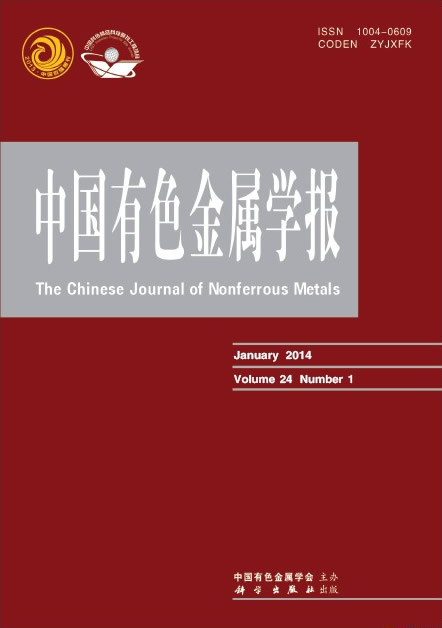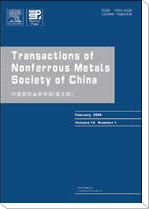中国有色金属学报(英文版)
Transactions of Nonferrous Metals Society of China
| Vol. 25 No. 11 November 2015 |
(1. College of Materials Science and Engineering, Chongqing University, Chongqing 400044, China;
2. College of Engineering and Technology, Southwest University, Chongqing 400716, China;
3.College of Mechanical and Electrical Engineering,
Hunan University of Science and Technology, Xiangtan 411201, China;
4. School of Materials Science and Engineering, Central South University, Changsha 410083, China;
5. School of Materials and Metallurgical Engineering, Guizhou Institute of Technology, Guiyang 550003, China)
Abstract:Pre-compression and heat treatment were performed on an extruded AZ31 Mg alloy, and their effects on subsequent deformation behavior were investigated. The results show that at low temperature annealing (170 °C for 4 h), the extruded samples with and without annealing exhibit a nearly equivalent yield stress (~148 MPa) because their microstructures are nearly unchanged. However, under the same annealing condition, the yield stress of sample with pre-twinning and subsequent annealing (~225 MPa) is higher than that of the pre-twinned one (~200 MPa). The former sample presents a hardening effect because the solute atoms segregated on twin boundaries lead to a strengthening effect. The pre-twinned sample annealed at 400 °C for 1 h shows a higher ultimate elongation (~28%) than the pre-twinned one (~15%), but its yield stress (~125 MPa) is much lower than that of the pre-twinned one (~200 MPa).
Key words: AZ31 Mg alloys; twinning; annealing hardening; pre-compression; heat treatment; deformation


